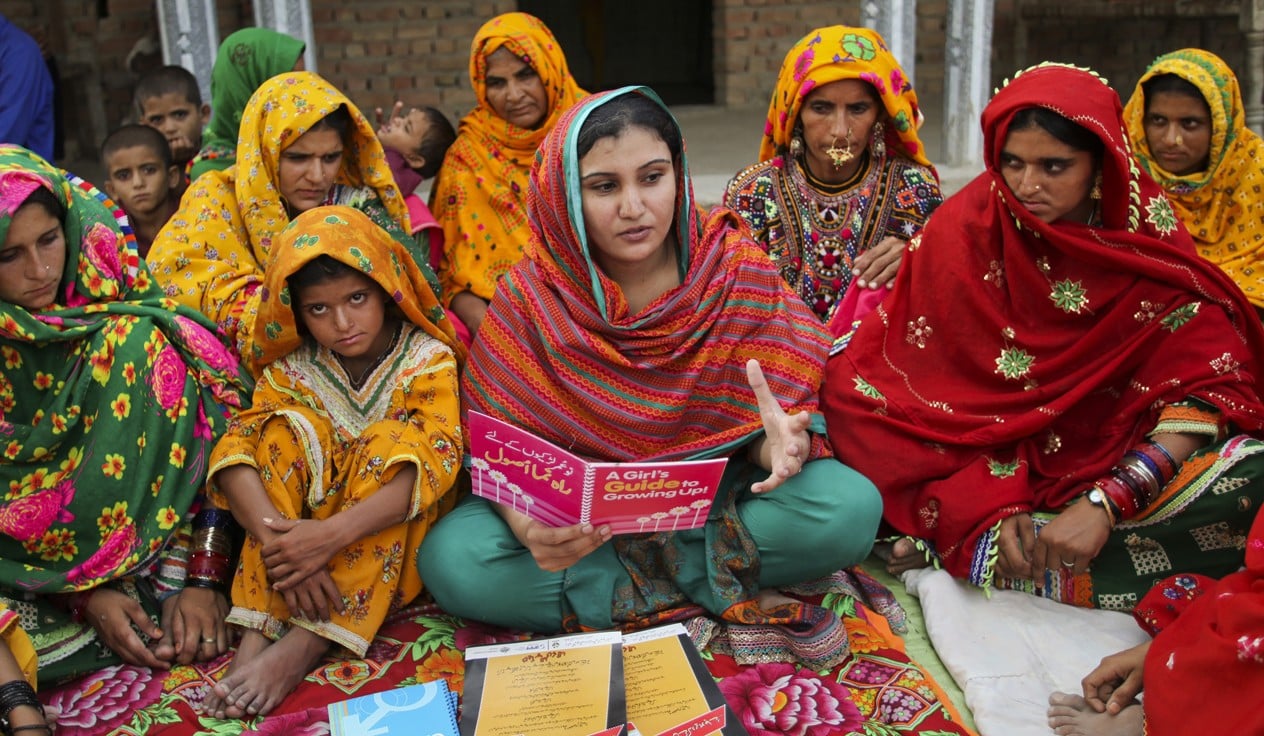
Now is the time for global leaders to redouble their commitments and give women and girls the ability to plan their lives and shape their futures

For the past two years, the global community has been reaffirming its commitment towards an ambitious and important goal: to ensure that, by 2020, 120 million more women and girls in the world’s poorest countries are able to decide -- freely and for themselves -- whether and when to have children. Government leaders, including in Pakistan, have made historic commitments to expand the availability of family planning information and services.
This week, Family Planning 2020 (FP2020), released its second progress report, which confirms, definitively, that our renewed collective efforts are heralding results. Family planning and contraception are reaching more women and girls around the world, and saving and improving more lives. In2013, 8.4 million additional women and girls were using modern contraceptives. In Pakistan alone, there were more than 400,000 new users -- and family planning helped avert nearly two million unintended pregnancies and more than 3,000 maternal deaths.
The government of Pakistan, along with counterparts in several other countries, has prioritised family planning based on its conviction that this is one of the best investments a country can make in its future. Access to contraceptives to delay pregnancies and space births helps ensure the health of women, newborns and children. Family planning also enables more girls to stay in school and more women to join and remain in the work force. This has tremendous social and economic benefits for families, communities and nations.
Yet, despite progress, many women who want to plan their families still lack the means to do so, even though it is their human right. Too often, women face huge barriers in accessing contraceptive information and services, particularly in poor and remote areas. Local clinics often run out of supplies, limiting women’s contraceptive options. Health workers may not be fully trained in providing services. Cultural attitudes or lack of knowledge may keep women and girls from asking questions or seeking care.
From the national to the community level, Pakistan and other countries must take a hard look at the barriers impeding access to family planning, and develop creative solutions. For example, it is critical to reach women and girls where they live. To this end, Pakistan has committed to refocusing its lady health worker programme, which provides services to millions of women through 100,000 community health workers, on family planning. This will mean that more women and girls can have access to family planning services, without having to travel long distances to health centres.
Additionally, to be empowered to plan their families, women and girls -- and young people in general -- must have the support of their peers and elders. It is important to engage religious and community leaders, husbands, fathers and brothers in discussions around family planning and encourage them to become powerful champions for women’s and girls’ health and well-being. Young people, in particular, need safe spaces in which to discuss family planning and access contraceptive services.
Political commitment at all levels is also needed to continue driving access to family planning -- and accountability is essential. In Pakistan, the national government has committed to this issue. Now, the Ministry of National Health Services Regulations and Coordination and the provinces must develop costed implementation plans for family planning services and commodities to continue to push this progress forward.
Finally, due to newly-established measurement systems, we now have more reliable data annually to track progress against Pakistan’s family planning goals. These data can and should be used by policymakers and key stakeholders to help match resources to needs, and to develop stronger policies and more impactful family planning programmes.
We have some very important reasons to be optimistic that we can and will achieve our goal of making voluntary family planning accessible to women and girls everywhere. Millions more women and girls already have access to family planning and contraception since these pledges were made. There is also unprecedented global momentum and attention around family planning.
Now is the time for global leaders, including in Pakistan, to redouble their commitments and accelerate progress. We have never been in a better position to give women and girls the ability to plan their lives and shape their futures -- provided that efforts are sustained and resources mobilised to make that happen.